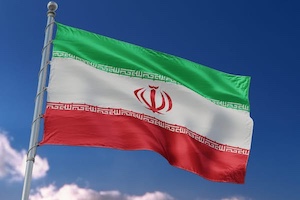Iran launches airstrikes with over a hundred missiles in response to attacks on its nuclear facilities

On the 1st, Iran launched over a hundred missiles at Israel, triggering air raid sirens across the country to warn citizens to take shelter. Iran claimed to have successfully intercepted a large number of missiles, resulting in only minor casualties. Iran warned Israel against retaliation, stating that such actions would provoke a more extensive and devastating counterattack. In response, Israel threatened to retaliate against Iranian nuclear facilities.
This attack was a response to the Israeli military's airstrike last week that killed Hezbollah leader Hassan Nasrallah. Iran's Supreme Leader Ayatollah Ali Khamenei ordered the airstrikes against Israel, marking the first use of hypersonic ballistic missiles, dubbed "Fattah." Between 150 to 200 missiles were launched. The Israel Defense Forces (IDF) reported that air raid sirens sounded in Tel Aviv and central Israel at 11 a.m. that morning, and the air defense system intercepted most of the missiles fired by Iran. However, some missiles still landed in central and southern Israel, and another wave of missile attacks occurred around 7:20 p.m., resulting in only a few light injuries. On that day, the airspace over Israel, Iraq, Lebanon, and Jordan was temporarily closed.
Israeli Prime Minister Benjamin Netanyahu vowed that Iran would pay a price and indicated that Israel might target Iranian oil and gas facilities, as well as nuclear sites, in retaliation. The following day, Israel reinforced its regular infantry and armored units in southern Lebanon to maintain pressure on Hezbollah. While the U.S. supported Israel's counteractions, it did not endorse strikes on nuclear facilities. The UK, France, Germany, and the European Union also condemned Iran's airstrike, while Iran warned that any Israeli retaliation would face "more comprehensive destruction."
- 115 reads
Human Rights
Fostering a More Humane World: The 28th Eurasian Economic Summi

Conscience, Hope, and Action: Keys to Global Peace and Sustainability

Ringing FOWPAL’s Peace Bell for the World:Nobel Peace Prize Laureates’ Visions and Actions

Protecting the World’s Cultural Diversity for a Sustainable Future

Puppet Show I International Friendship Day 2020

